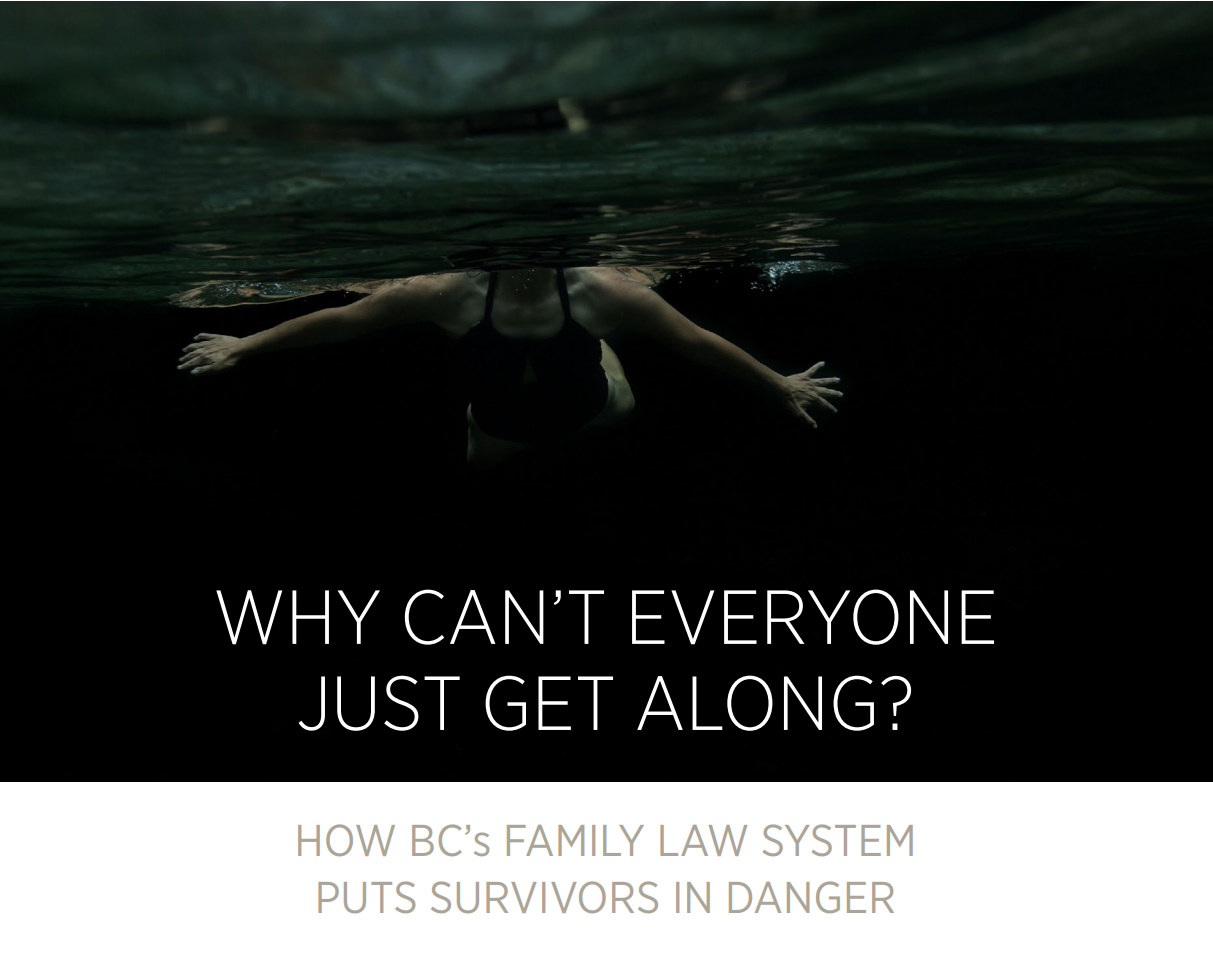Important Court of Appeal Decision!
Rise lawyer Vandana Sood has scored an amazing victory for women experiencing family violence in BC, last week.
On Thursday, the Court of Appeal of BC announced their judgement in K.M.N. v. S.Z.M.
This was an appeal of a final parenting order that provided the father (the respondent) with equal and unsupervised parenting time. The Court of Appeal found that the trial judge had failed to conduct a proper analysis of the mother’s allegations of family violence. The Court of Appeal also found that the trial judge failed to consider the effect of a child’s exposure to family violence when assessing the best interests of the child, and relied on myths and stereotypes in reaching the trial decision. A new trial has been ordered, and the father’s parenting time was ordered to be supervised in the meantime.
This decision marks an important step forward for Rise and our ongoing commitment to improving access to justice for all people in BC.
What does the decision mean?
The BC Court of Appeal has re-affirmed that courts must take into account the impact of indirect violence on a child’s best interests when deciding parenting arrangements, not just direct violence against the child.
This is significant for our clients (80% of whom have experienced family violence), women, their children, and all parents who have experienced family violence in BC. The appeal sets a precedent for future cases, meaning that judges in the Provincial and Supreme Court of BC must follow this ruling. Strong precedents also make it easier to advise clients, because court outcomes are more predictable.
What impact does family violence have on children?
The negative impacts on children witnessing family violence is well established. Even if the abuse is not directed at them, they are still affected indirectly through witnessing or knowing about the abuse, as well as knowing how it impacts their caretaker.
Research shows that children exposed to intimate partner violence (IPV) are more likely than other children to be aggressive, have behavioural problems, and exhibit higher rates of Post-Traumatic Stress Disorder symptoms. All forms of family violence have profound negative impacts on survivors and children. Coercive control is often overlooked, but also has profound negative impacts on children, including limiting their social interaction with peers, preventing engagement in extra-curricular activities, and restricting access to their mother.
(Source: Jaffe et. al, (2023), Making Appropriate Parenting Arrangements in Family Violence Cases: Applying the Literature to Identify Promising Practices)
Myths and stereotypes
When lawyers and judges rely on harmful myths and stereotypes, their decisions can undermine the safety of women and children.
Common myths and stereotypes in the family law system include:
Women exaggerate violence against them to gain advantage in court.
If women are experiencing family violence, they will report it to the police and the police will respond appropriately.
Women claiming they experienced violence are just trying to get more money and property.
Women don’t want dads to see their kids because they are vindictive and want to keep children all to themselves.
This means that women’s experiences of violence are regularly not believed by police, lawyers, and judges. Even if legal professionals believe that violence has occurred, the significance of the violence to legal advice or decisions is sometimes minimized. As a result, some women report having been told by their lawyers, and in some cases directly by judges, not to talk about family violence in court, because they will not be believed or because it is not important. Some women, support workers, and legal professionals have found that judges often prioritize the child’s relationship with a father over safety considerations, which can be contrary to the best interests of the child.
This appeal and new case law is an important step towards ensuring that judges consider the impacts of indirect family violence on children, and their best interests.
The BC Court of Appeal stated explicitly that judges cannot simply assume that allegations of family violence have been made for tactical reasons. If they do so their decision can be overturned.
This decision is in line with academic research that contradicts the myth that survivors regularly make up claims of violence to get ahead in court.
“The risk that women’s reports of domestic violence will be seen as “parental alienation” or otherwise harm their credibility also calls into question why they would make false allegations when this strategy does not result in any “upper hand” at all…Research substantiates that the focus should instead be on “the widespread false denials and minimisation of abuse by perpetrators” as well as their manipulation of the legal system to perpetuate control and avoid responsibility for their abuse.”
Jennifer Koshan, “Challenging Myths and Stereotypes in Domestic Violence Cases” (2023) 35:1 Can J Fam L 33.
Frequency of shared parenting with abusive fathers
Under BC’s Family Law Act, the “best interests of the child” is the only measure that courts are allowed to consider when deciding parenting arrangements. Many contested parenting cases end in equal or “50-50” parenting time, and this is often the case even where family violence is present. These shared parenting schedules can place women and children in complex and potentially dangerous circumstances.
“Child custody decisions embody two erroneous and interrelated assumptions: abuse of the mother is not believed to make men bad fathers, just bad partners; and contact with fathers, even abusive ones, is assumed to be in the best interests of children.”
Evan Stark, “Rethinking Custody Evaluation in Cases involving Domestic Violence,” Journal of Child Custody 6, no. 3-4 (2009): 295 [Stark, 2009]
Why Can’t Everyone Just Get Along?
Rises 2021 report, Why Can’t Everyone Just Get Along? How BC’s Family Law System Puts Survivors in Danger, looks in detail at how harmful myths and stereotypes are affecting women and children’s safety. For more information on pervasive issues with the family legal system in BC, you can read the report here .
If you are interested in watching our trainings including one on myths and stereotypes, our Virtual Legal Clinic’s lawyer- Vicky Law and coordinator Stephanie Melnyk completed a series of training for lawyers in collaboration with Courthouse Libraries from September 2023- December 2023.
Rise: What is coercive and controlling behaviour in intimate-partner relationships? (Part 1)
Rise: Why Can’t Everyone Just Get Along? – This training covers specific myths and stereotypes.



